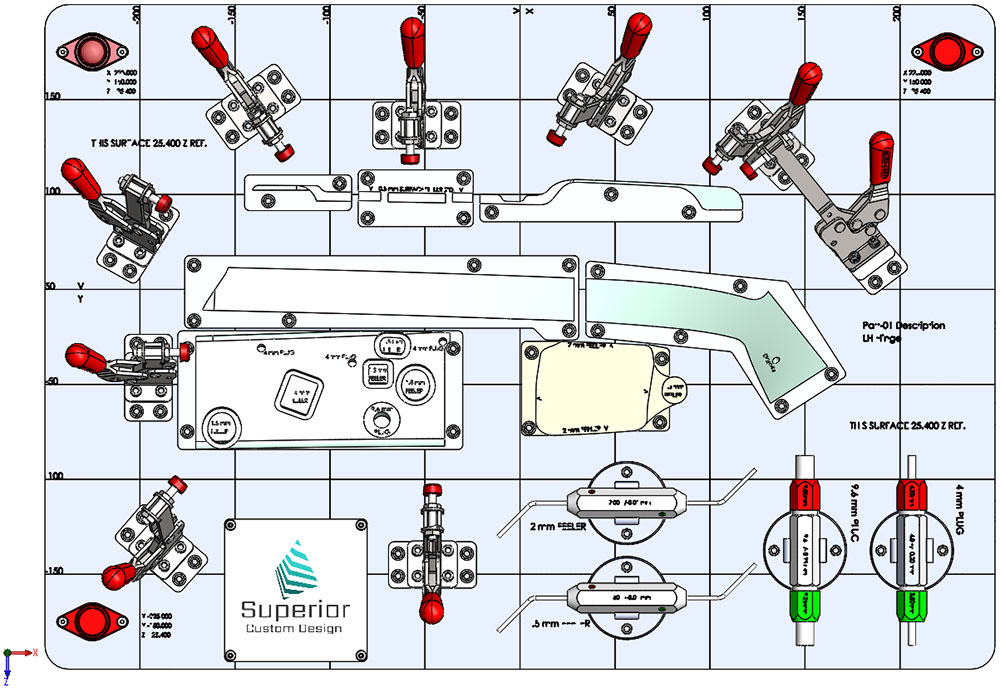Scope
Module 1: Introduction to Gage Design
This module provides an overview of the significance of gage design in the realm of manufacturing processes. It emphasizes the crucial role that gages play in ensuring the quality assurance and control of products. Students will gain a deeper understanding of how gages contribute to maintaining consistency, accuracy, and reliability in manufacturing operations. By comprehending the importance of gage design, students will appreciate the impact of their work in the broader context of manufacturing excellence.
Module 2: Metrology and Measurement Systems
In this module, students delve into the fundamental principles of metrology, which is the science of measurement, and dimensional measurement in particular. They will explore the underlying theories and concepts that govern measurement systems. Additionally, students will receive an overview of various measurement instruments and systems commonly employed in industries. Understanding these concepts and tools is crucial for effective gage design, as it lays the groundwork for accurate and precise measurements.
Module 3: Gage Types and Applications
This module focuses on the classification of gages based on their function and specific measurement objectives. Students will learn about different types of gages and their suitability for various applications. Additionally, they will explore the key factors and considerations that come into play when designing gages for different measurement purposes. By gaining insight into the diverse applications of gages, students will develop the ability to tailor their designs to meet specific industry requirements.
Module 4: Gage Design Principles
Designing gages for precision and accuracy is the core focus of this module. Students will learn the fundamental principles and methodologies behind creating gages that deliver reliable and precise measurements. They will explore various design considerations, such as geometric tolerancing, material selection, and error analysis. By acquiring a solid foundation in gage design principles, students will be equipped to create effective gages that meet rigorous quality standards.
Module 5: Gage Components and Features
This module examines the essential components of a gage and their respective functions. Students will gain a comprehensive understanding of how various elements, such as contacts, anvils, indicators, and reference surfaces, contribute to the overall performance and reliability of the gage. Additionally, students will learn to incorporate features that enhance ease of use, ergonomics, and durability. By comprehending the significance of each component and feature, students will be able to design gages that are efficient, user-friendly, and robust.
Module 6: Gage Design Standards and Specifications
In this module, students familiarize themselves with industry standards and guidelines governing gage design. They will learn about relevant standards organizations and the specific tolerances and measurement requirements set forth by these organizations. Understanding and adhering to these standards is crucial to ensure the compatibility, accuracy, and reliability of gages across different manufacturing processes and industries.
Module 7: Gage Calibration and Verification
Calibration plays a vital role in maintaining the accuracy and reliability of gages. In this module, students will explore the importance of calibration and the techniques used to verify and validate gage performance. They will learn about calibration procedures, measurement traceability, and the role of calibration equipment. By understanding calibration processes, students will be equipped to ensure the accuracy and precision of gages throughout their lifecycle.
Module 8: Practical Gage Design Projects
This module emphasizes hands-on application of gage design principles through practical exercises and projects. Students will engage in real-world design challenges, working individually and collaboratively to solve problems and develop innovative gage designs. These projects will enable students to apply their theoretical knowledge, enhance their problem-solving skills, and gain valuable practical experience in gage design.
After completing the Design Gage Course, you'll have the knowledge and abilities needed to create reliable gages that can efficiently assess and control risks in your software projects. Don't pass up this chance to boost your career with NPDD House and improve your risk management skills!

